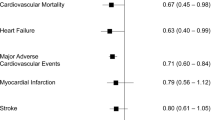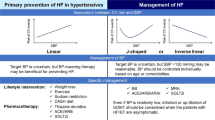Abstract
Beta-blockers are not very effective at lowering blood pressure in elderly hypertensive patients or in Afro- Caribbeans and these two groups represent a large proportion of people with raised blood pressure. Furthermore they do not prevent more heart attacks than the thiazide diuretics. Beta-blockers can also be dangerous in many hypertensive patients and even when these drugs are not contraindicated, they cause subtle and depressing side effects which should preclude their usefulness. The time has come therefore to reconsider the endorsement of beta-blockers by the British Hypertension Society and other guidelines committees, except possibly for severe resistant hypertension, high risk post-infarct patients and those with angina pectoris. The time has come to move across to newer, safer, more tolerable and more effective antihypertensive agents whilst continuing to use thiazide diuretics in low doses in the elderly as first choice, providing there are no contraindications.
This is a preview of subscription content, access via your institution
Access options
Subscribe to this journal
Receive 12 digital issues and online access to articles
$119.00 per year
only $9.92 per issue
Buy this article
- Purchase on Springer Link
- Instant access to full article PDF
Prices may be subject to local taxes which are calculated during checkout
Similar content being viewed by others
Author information
Authors and Affiliations
Rights and permissions
About this article
Cite this article
Beevers, D. Beta-blockers for hypertension: time to call a halt. J Hum Hypertens 12, 807–810 (1998). https://doi.org/10.1038/sj.jhh.1000701
Published:
Issue Date:
DOI: https://doi.org/10.1038/sj.jhh.1000701
Keywords
This article is cited by
-
Losartan and the meaning of LIFE
Journal of Human Hypertension (2002)



